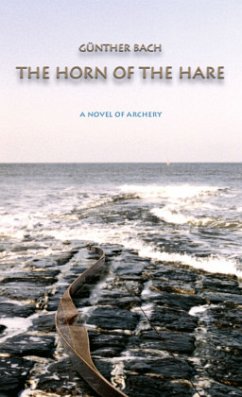"The Horn of the Hare" was written during the 80's and describesthe fascination awakened by the sound of the bow string.From a manuscript that lay dormant for twenty years behind the iron curtain emerges a profound little book about two men and their common interest in archery. The the ashes of a war torn Europe the men search for freedom, both within themselves and from an oppressive world under the iron fist of a communist regime. Through the ancient sport of archery an enduring bond is nurtured as they struggle in their search. One man watches as the wall comes down, has the other found his elusive freedom?
On one level, Günther Bach's "The Horn of the Hare" is a mystery of disappearance. When the narrator comes for his accustomed summer visit to his archery teacher, the near-recluse's cottage on an island off East Germany's Baltic Coast is unchanged, but deserted. Will the man who, almost unwillingly, inspired the visitor to take up archery return? Is he the victim of foul play? If he has left voluntarily, why and whither? Has he left a message for his student?But this is no breathless "action thriller". On the contrary, the novel demands an unhurried reader - and in so doing, imparts one of the archery teacher's central principles. The narrator's examination of the contents of the cottage is worthy of a detective; his recollection of his teacher's words and actions suggests a motivation and the solution of the puzzle, but more importantly for the reader, it is a review of the apprenticeship. If the title were not already taken centuries ago, this book could have been called "Zen and the Art of Archery".In passing, the novel is also a thumbnail sketch of a society explicitly devoted to so embedding a person in collectives that the self disappears - under the slogan "moving from I to we". Do mastery and a worthy life depend on society's recognition and reward? Pupil and teacher take part in and then abandon the state-organized archery clubs and tournaments. For the teacher, these are not merely irrelevant, but contrary to his aim. For this book is also the story of an individual who, without overt rebellion, takes the other direction, centering himself and exploring his abilities for their own sake - until here, too, the self disappears, in another way.Learning how to let go is the key to more than shooting an arrow.Review of the print version, Traditional Bowhunter Magazine, Vol. 17 6/2005, USA

